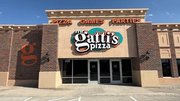Operations
How restaurants can boost employee morale
Employee morale can make or break a restaurant. These tips will help an operator boost morale and have a restaurant running smoother.

December 5, 2022 by Mandy Wolf Detwiler — Editor, Networld Media Group
Restaurant workers have come under scrutiny during the last three years as more and more leave the industry due to low pay, low morale and heavy workloads. Low morale, especially, is a concern for those team members who currently work in restaurants.
According to the Bureau of Labor Statistics, the 2021 median pay for restaurant workers is $12.49 an hour, or $25,980 a year. Most restaurant workers face short-term on-the-job-training. In 2021, there were 4,146,000 restaurant workers in the U.S.
Brian Nagele, a consultant in the food and beverage industry and former restaurant owner in Philadelphia, said one way to encourage employees to keep positive morale around the restaurant is to gamify their workflows.
"As a business owner and team leader, it's your responsibility to keep your employees motivated on the job," Nagele said. "After all, the success of any food and beverage business hinges on excellent customer service and genuinely pleasant smiles. I've found that creating leaderboards can work wonders to keep employees' spirits high and their customer engagement positive."
Nagele said these leaderboards identify employees who excel, including delivering orders on time, cleared tables promptly or just delivered great customer service. "You can schedule regular check-ins to tally points and rotate rewards for high performance," he said.
Communication
Renee Guilbault, a food-industry consultant with expertise in large-scale, global multi-unit food and beverage operations at Essayer Food Consulting, said poor morale and mindset go hand in hand.
"There are many sides to poor employee morale – and it largely stems from employers failing to communicate the true value of challenging, low-paying roles," Guilbault said. "It makes so much sense that people leave these jobs when they don't understand what's in it for them and that they are building blocks toward a robust and rewarding career in food."
Guilbault said the employers who succeed in creating positive cultures and achieve higher retention rates spend time working with their team members to help them understand what they want to accomplish with their careers, and help them to achieve new skills and tools so that they continue to grow in their organizations.
"If an employer wants to turn around poor morale, they need to start with broadening the perspectives and practices of those who work for them, so that they create meaningful opportunities for their teams to find meaning, to reframe and to problem solve – all key skills needed for team members to feel the agency they need in challenging roles in order to be happy enough to be retained," Guilbault said.
From the employee side of the morale coin: Rule number one is finding the employee's personal passion and using it as the fuel they need to persevere through challenging jobs.
"If you can adopt a mindset that any adversity you inevitably face will make you stronger and more capable, and if you decide not to let anything knock you off your path toward achievement – there is no stopping your career in the food world," Guilbault said. "Why? Because the food industry is a trillion-dollar industry in America alone, and it's where you can earn your way into leadership roles with any background, education, or skill set. All you need is a willingness to learn and an ability to hold your dreams as your fuel and keep growing."
Money — the great motivator?
Izzy Kharasch, president and founder of Hospitality Works, a bar and restaurant consulting company, said employees have left positions even after being offered raises of 20% to 30%, and many were leaving without any new position.
So if money isn't the great motivator, what is? Assessments can help operators find out. Talking over the results of an assessment with the employee is paramount. The operator is spending important one-on-one time with employees.
"I have found that employees who feel respected by owners and managers are more dedicated and therefor stay on the job longer," Karasch said. "We have not even gotten into the assessment but we have already affected the employee in a positive way."
Kharasch said there are a few ways an assessment helped her clients motivate and keep staff:
- How are staff most productive? "In one example, we gave the assessment to our lead production cook who started early in the morning and worked by himself for the first four hours," she said. "In the first paragraph of the assessment, we learned that this employee would be most productive when partnering with another person. This means that while he was productive, he could be happier and more productive with a prep partner. We changed the schedule to have the prep people come in later and work in teams. Production is up and no one has left. No raise required!"
- Barriers to success: what stops you? Karasch spent time reviewing a key portion of the assessment that focuses on making the employee successful. "This is a great long-term lesson for the employee because it will make them better at their job and therefor more valuable in the job market," she said. "In this example, the employee learned that they were not being challenged enough and they were having difficulty expressing their feelings to management. A frustrated employee is one who will leave sooner rather than later. This really opened the lines of communication for both the employee and management. We now touch base with this employee every day in a more meaningful way. No raise required."
- Finally, understand how teamwork works. The employee they assessed worked better in a team setting, Kharasch said. "What we learned from his assessment really applies to all our staff," she said. "They want to understand the rules and structures in advance and at the same time they don't want to be overwhelmed which makes them feel like they are failing. We also learned the importance making sure that we set up simple methods of communication so that the staff could let us know what they need."
About Mandy Wolf Detwiler
Mandy Wolf Detwiler is the managing editor at Networld Media Group and the site editor for PizzaMarketplace.com and QSRweb.com. She has more than 20 years’ experience covering food, people and places.
An award-winning print journalist, Mandy brings more than 20 years’ experience to Networld Media Group. She has spent nearly two decades covering the pizza industry, from independent pizzerias to multi-unit chains and every size business in between. Mandy has been featured on the Food Network and has won numerous awards for her coverage of the restaurant industry. She has an insatiable appetite for learning, and can tell you where to find the best slices in the country after spending 15 years traveling and eating pizza for a living.
 ChatGPT
ChatGPT Grok
Grok Perplexity
Perplexity Claude
Claude








